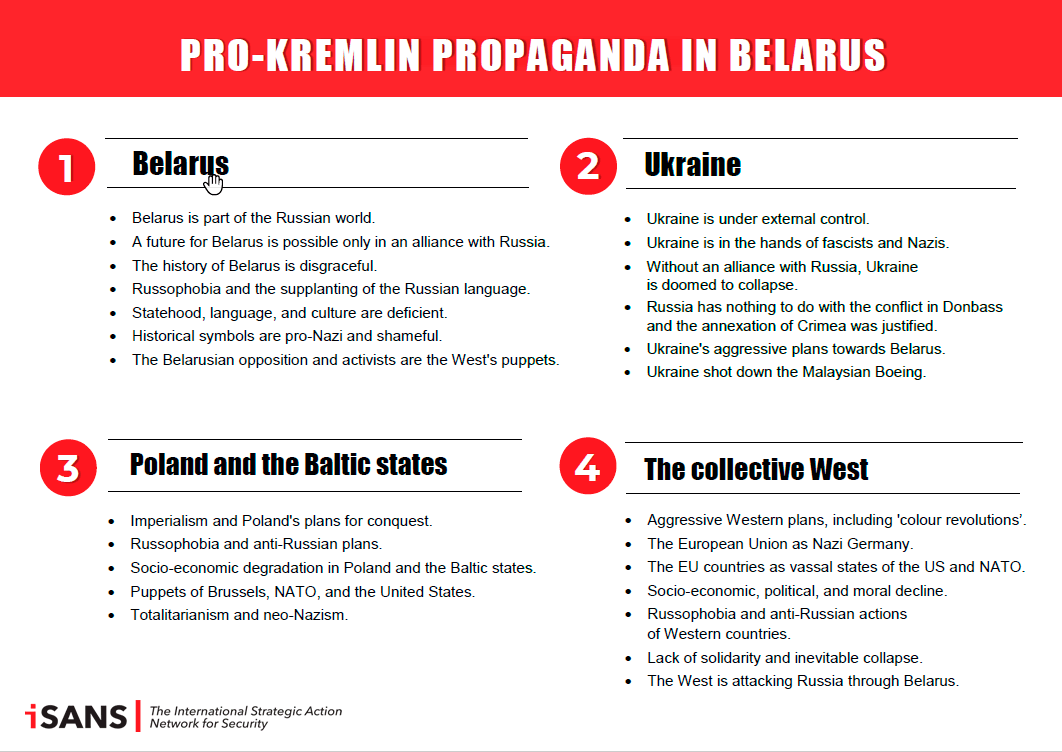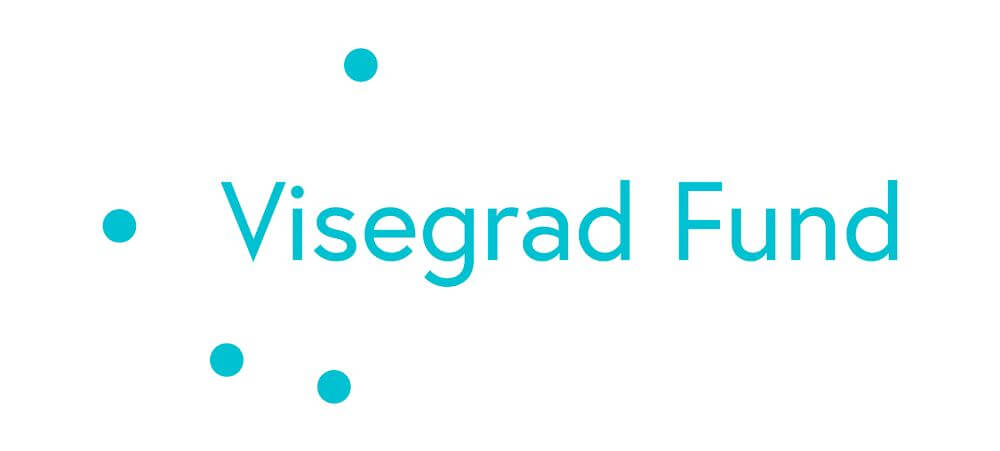Experts and media activists are constantly looking for effective methods to counter propaganda. Limiting its influence on Belarusian society is not an easy task, given the variety of forms and means of its dissemination.
Messages of toxic public pages in Vkontakte
The agenda of the state media of Belarus and Russia on Belarusian events was synchronized literally within three weeks after the August elections in Belarus. The main propaganda narratives on the television channels of the two countries have become almost identical, and since then a kind of situational correction has begun. This has put Belarus in an extremely vulnerable position in the information sphere and has even allowed iSANS experts to declare that the country’s information sovereignty has ended.
Despite the all-round support that Russia has provided to Alexander Lukashenko, who is maintaining power, Belarusians continue to have a positive attitude towards Russia, and many have not given up hope that salvation from the arbitrariness of the authorities, torture and, murder happening now could come from the East. And Russia is skillfully manipulating these hopes.
Considering the decline in popularity of television as a source of information, one of the most powerful tools of Russian influence in Belarus is social networks, specifically the most popular social network Vkontakte. In the fall of 2020, political scientist Andrei Yeliseyeu published a report based on the continual monitoring of the largest public pages on Vkontakte aimed at Belarusian audiences and which regularly publish propaganda content.
It seems that, in addition to promoting the Russian World and publishing anti-Belarusian themes in the form of discrediting Belarusian statehood, history, language, and culture, such pages regularly promote anti-Ukrainian and anti-Western messages. Hence, in the toxic pages on Vkontakte there is a consistent denigration of all neighboring states to Belarus, save Russia, as well as Western countries in general – just like in pro-Kremlin media.
Several toxic pages are focused on historical topics, preferring to ridicule the historical forms of Belarusian statehood, while denying Stalinist repressions and praising Stalinism. The idea is cultivated that Belarus owes the very fact of its existence to Russia and that a good future for Belarus is possible only on condition of a close union with Russia or as a part of it. By depicting a false dilemma about the inevitable harm to, if not death of Belarus from closer relations with Western countries, an alliance with Russia is presented as the only possible option – something which every Belarusian patriot or simply a mindful person who wants the best for their country should support.
Hate speech and methods of discrediting
Many toxic pages often use various forms of hate speech, at times calling overtly for violence against individuals and groups of the population on professional, ethnic, and political grounds. Such communities often attack Belarusian statehood, language, and history indirectly through consistent denigration, often using hate speech and obscene vocabulary. They attack individuals or groups of citizens with pro-Belarusian views, public activists, human rights defenders, among others. Primitive collages, dehumanization, comparisons of Belarusian patriots with fascists, animals, and even direct calls for violence are widely used.
Those who hold pro-Belarusian views invariably appear in a negative light, as people who are stupid, cowardly, greedy, two-faced, and disposed to betrayal. They also baselessly attribute to them hostile intentions towards their own country, such as the desire to destroy the economy, deprive Belarus of statehood, and allow for the occupation of the country. Many toxic pages use labels such as «zmagars» and «svyadomites» towards reviled groups. It is important to note that since the fall of 2020, Belarusian state television has fully adopted these dirty tricks and labels, attributing the most base feelings and humiliating characteristics to the «zmagars». BT calls «Zmagars» all Belarusians who take part in protests and acts of disobedience, and in a broader sense all people who are dissatisfied with the Belarusian authorities.
«Zmagars» and «svyadomites» are set in contrast by many toxic publics to «real» Belarusians who are loyal to Alexander Lukashenko. For example, the published report cites one toxic page meme where a «zmagar» is represented as a cowardly homosexual Russophobe born in the 2000s who dreams of emigrating to Poland, reads opposition sites, values the «old Belarusian spelling», but does not speak Belarusian. He is contrasted with a brave, strong, and patriotic «alpha-riot policeman» who «served in the army», «is strong as an ox», and «takes your girl into a paddy wagon while you sit aside».
Anti-Semitic themes are not uncommon on toxic Vkontakte public pages. For example, one of the «witty» memes changed the name of Sergei Tikhanovsky’s movement into «A Country for a Jew», and this is still a fairly innocent example of an anti-Semitic message from the set that researchers came across in six months of monitoring.
Changes in the agenda of toxic public pages
It is interesting that after the events of August 9 and the mass terror against the Belarusian people, several toxic pages on Vkontakte changed their agenda somewhat. Violence against civilians in the post-election period was so blatant and on such a mass scale that it affected the teams of several toxic Vkontakte pages and began to affect their editorial policy. One of the largest toxic pages, Our country – Belarus (with more than 24K subscribers) even stopped updating for a while, explaining this by talking about reprisals against people they knew:
«Now we are receiving conflicting information and we do not know how to react to it. We are bowed and feel guilty for our inability to do at least something good; we no longer know how, even though a few days ago we were sure we knew. And we just learned that a few days ago our comrades were detained who were just returning home from work. They were treated cruelly and the fate of one of them is still unknown to us».
The pro-Soviet page History of Belarus, which leans towards idealizing the time of the USSR, following the August events began to regularly publish content critical of the Belarusian authorities, claiming that fascists are not those who use the white-red-white flag, but those who use violence against their own people.
«Now the Ministry of Internal Affairs, demonstrating its strength, is conducting mass arrests, using its entire personnel, attracting all kinds of titushki without insignia from the Organized Crime Unit of the Ministry of Interior, and rolling a huge procession of water cannons, paddy wagons, and armored vehicles with machine guns around the city», says one November post on the page.
In addition, in November 2020, several toxic Vkontakte pages associated with regional propaganda sites disappeared along with them. Still, there is no need at this point in talking about a fundamental shift in the situation. Following a temporary pause, the largest toxic public pages have continued their activities in the same vein, and in recent months some new ones have appeared.
What about neutral public pages?
The problem of toxic content is not limited to a few dozen related public pages. It also affects pages whose administrators strive to create a high-quality information product for their target group, whether they are residents of a certain area or subscribers to a thematic page. This occurs because of the type of content published and due to the lack of sufficient moderation of comments left under posts.
To help administrators and editors of social media groups, iSANS experts have developed a kind of online tutorial. It explains why it is important to take a more responsible attitude to published online polls on political topics and reports in the official media, describes methods of manipulating public opinion through comment sections, and provides relevant examples.
Debunking website propaganda
Given the vast array of materials containing disinformation and propaganda, debunking each of them would require enormous human and time resources. At the end of last year, the monitoring team of the international expert network for countering hybrid threats iSANS, led by Andrei
Yeliseyeu, proposed a solution to this problem by demonstrating the systematic nature of propaganda. The online platform Fakeby.org, launched in early December 2020, is a database of propaganda pieces that either directly relate to Belarus or are aimed at Belarusian audiences. The database is based on research that proposes a classification of all major pro-Kremlin narratives across Belarus. As it turned out, the vast majority of the many thousands of propaganda pieces use a limited set of 25 messages, which can be divided into four main segments.
The first of these concerns Belarus proper and contains misinformation about the political development of the country, discrediting the culture, history, language, and historical symbols. The second is related to Ukraine and a biased interpretation of its internal political events. The third is aimed at denigrating Belarus’s neighbors – Poland and the Baltic states – which supposedly suffer from socio-economic degradation, are U.S. puppets, bearers of Nazi traditions, and act aggressively towards the Belarusian state. The last type of propaganda narratives concerns the so-called collective West represented by the United States and European countries, as well as international organizations that seem to be obsessed with Russophobia and perceive Belarus as a means of attacking Russia.

Classification of pro-Kremlin narratives in Belarus
These narratives are aimed at creating a complete and total picture of the world in the mind of the receiver. A person who has taken such a world description at face value will conclude that Belarus’s proximity to hostile, fascist, and rotten countries leaves a close alliance with Russia as the only logical and reasonable way out. An awareness of the 25 propaganda message system is useful for media representatives, editors of social media groups, and ordinary users in identifying propaganda pieces.
Fakeby.org classifies each of the articles within its purview into one or more of 25 propaganda narratives. Over time, the online platform will demonstrate the entire range of propaganda in Belarus using a couple of hundred articles, without the need for haphazard analysis of thousands of publications. Any user through the form on the site can easily offer the creators of the online platform an article for analysis that is assumed to contain propaganda messages.
This article is published as part of the Prospect Foundation project “Online Media Literacy for Editors and Administrators of Social Media Public Pages”, managed by iSANS and supported through grants from the International Visegrad Fund. A Russian version of this article will soon be available on Reform.by

Материал доступен на русском языке: Беларусские медиаактивисты в поиске методов противостояния пропаганде









